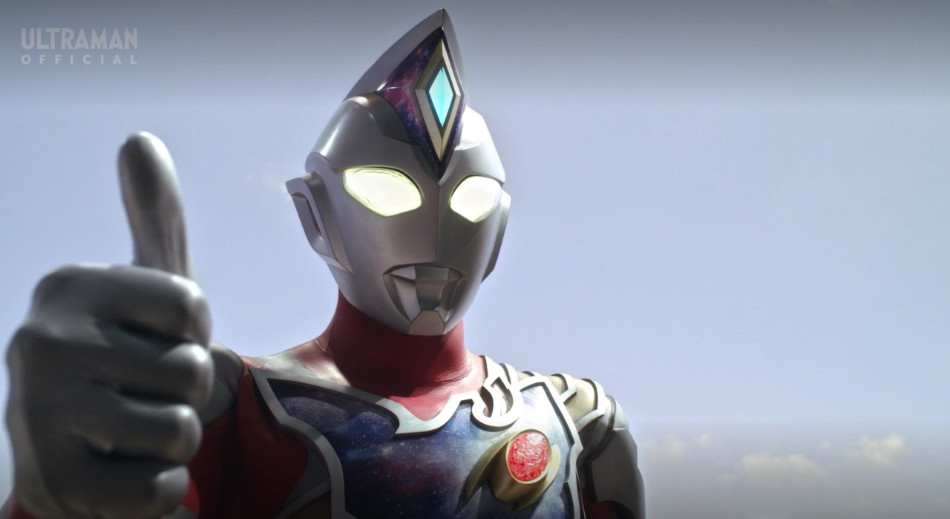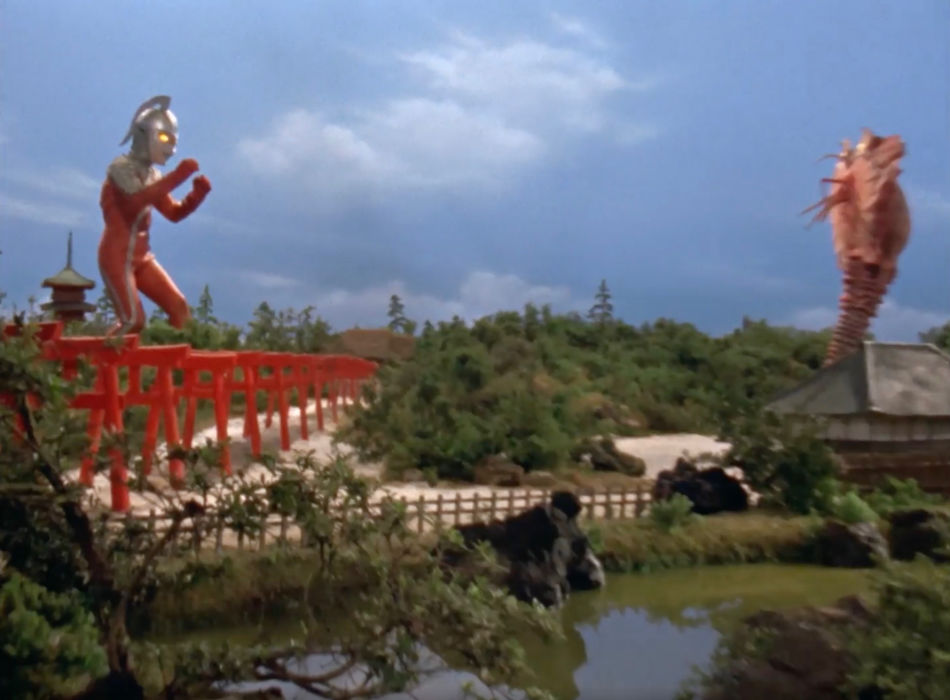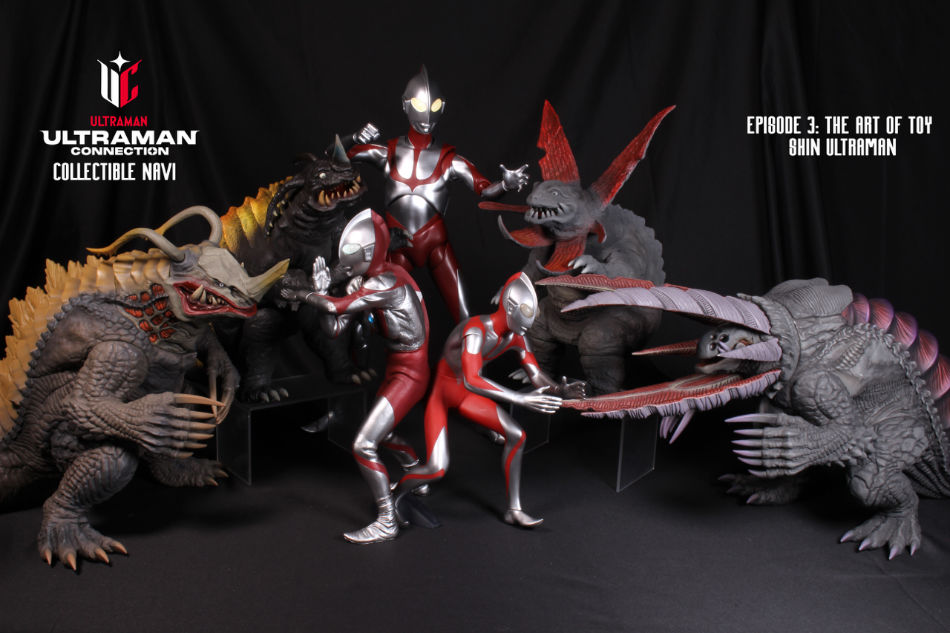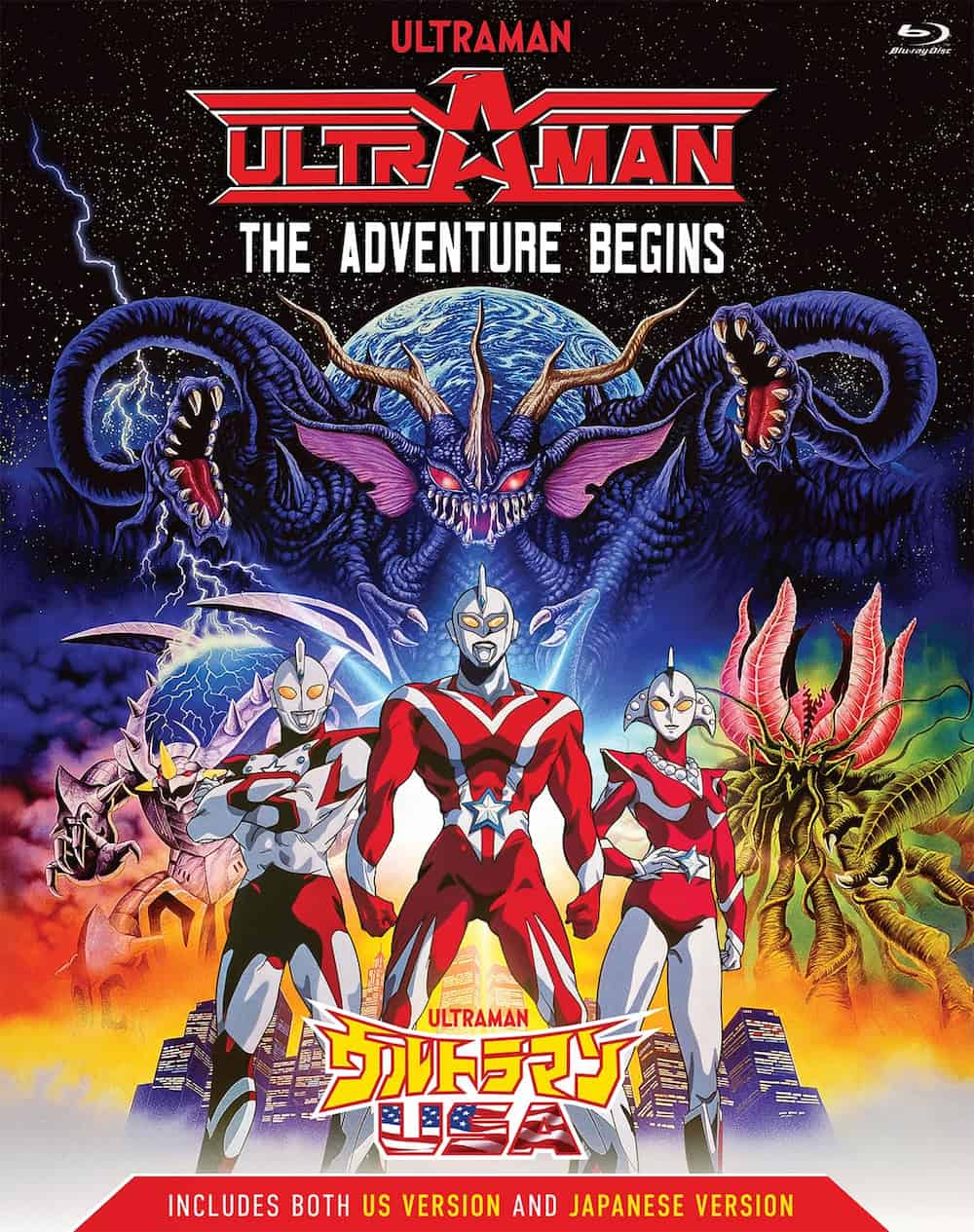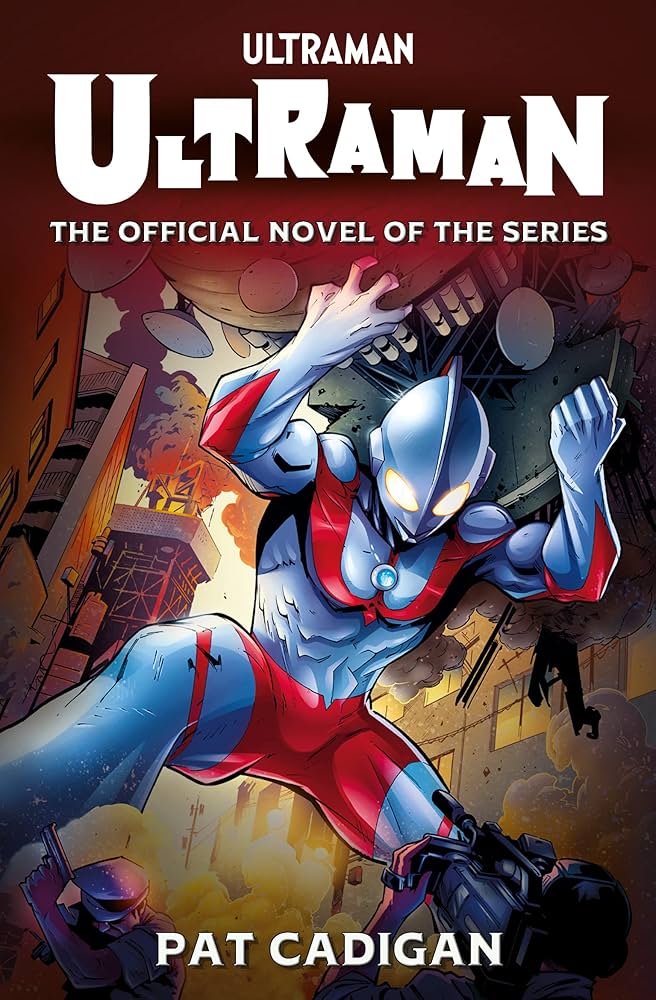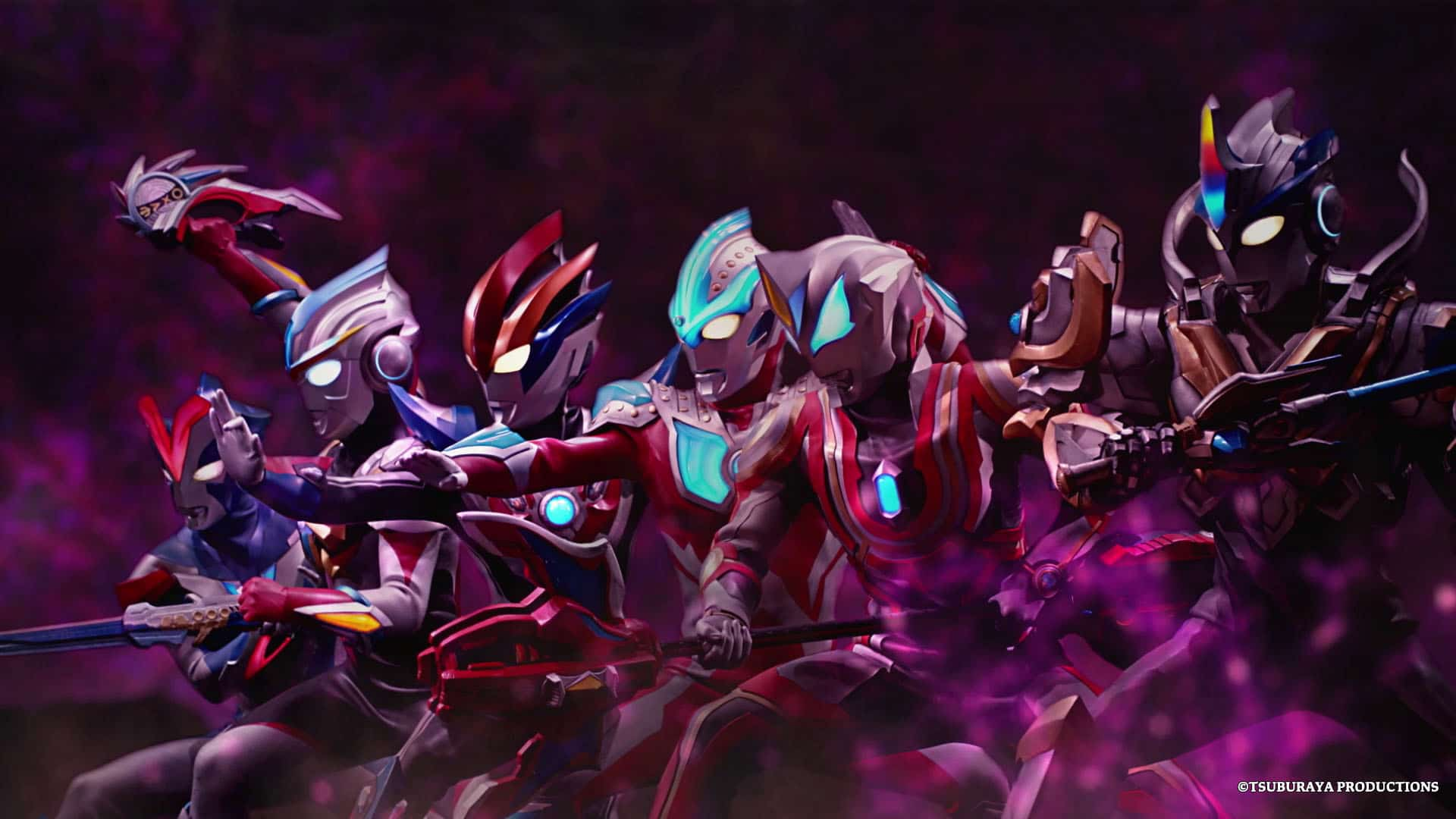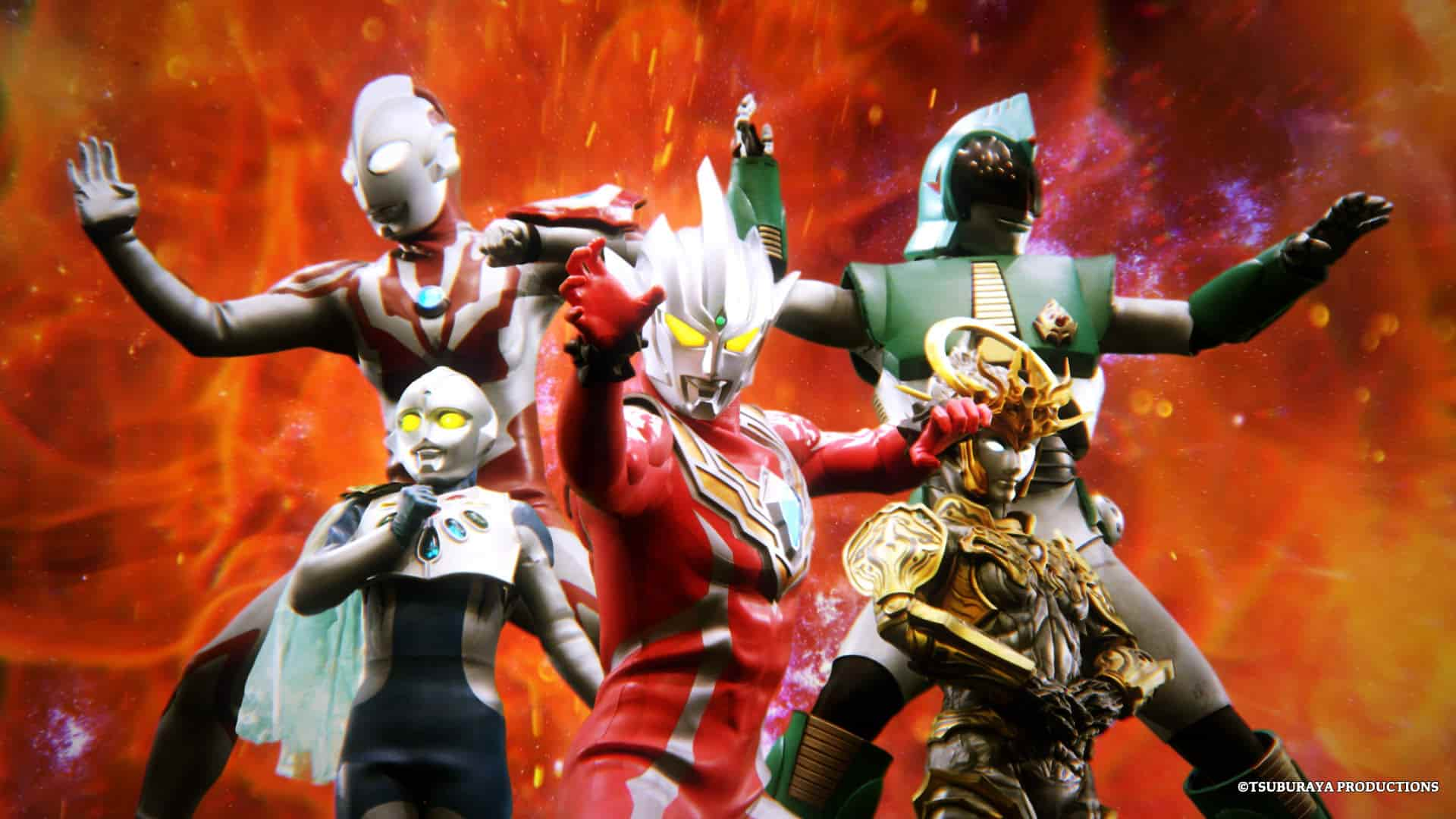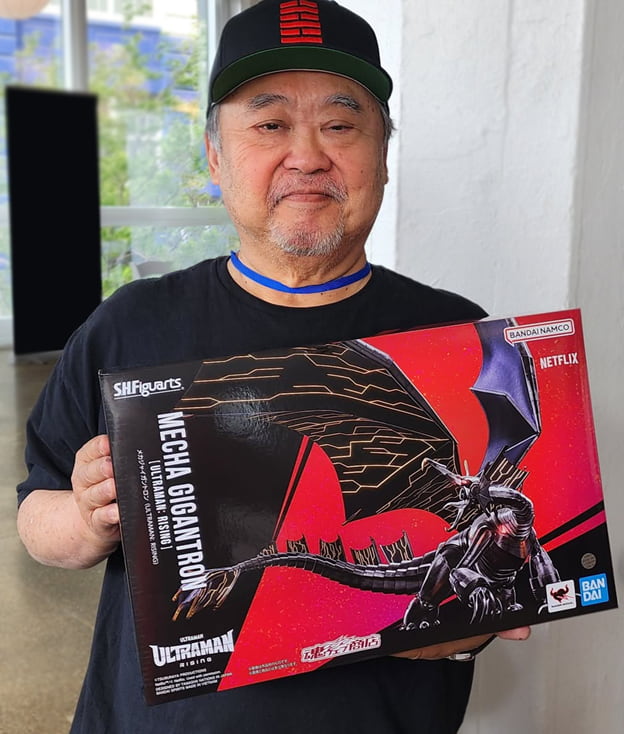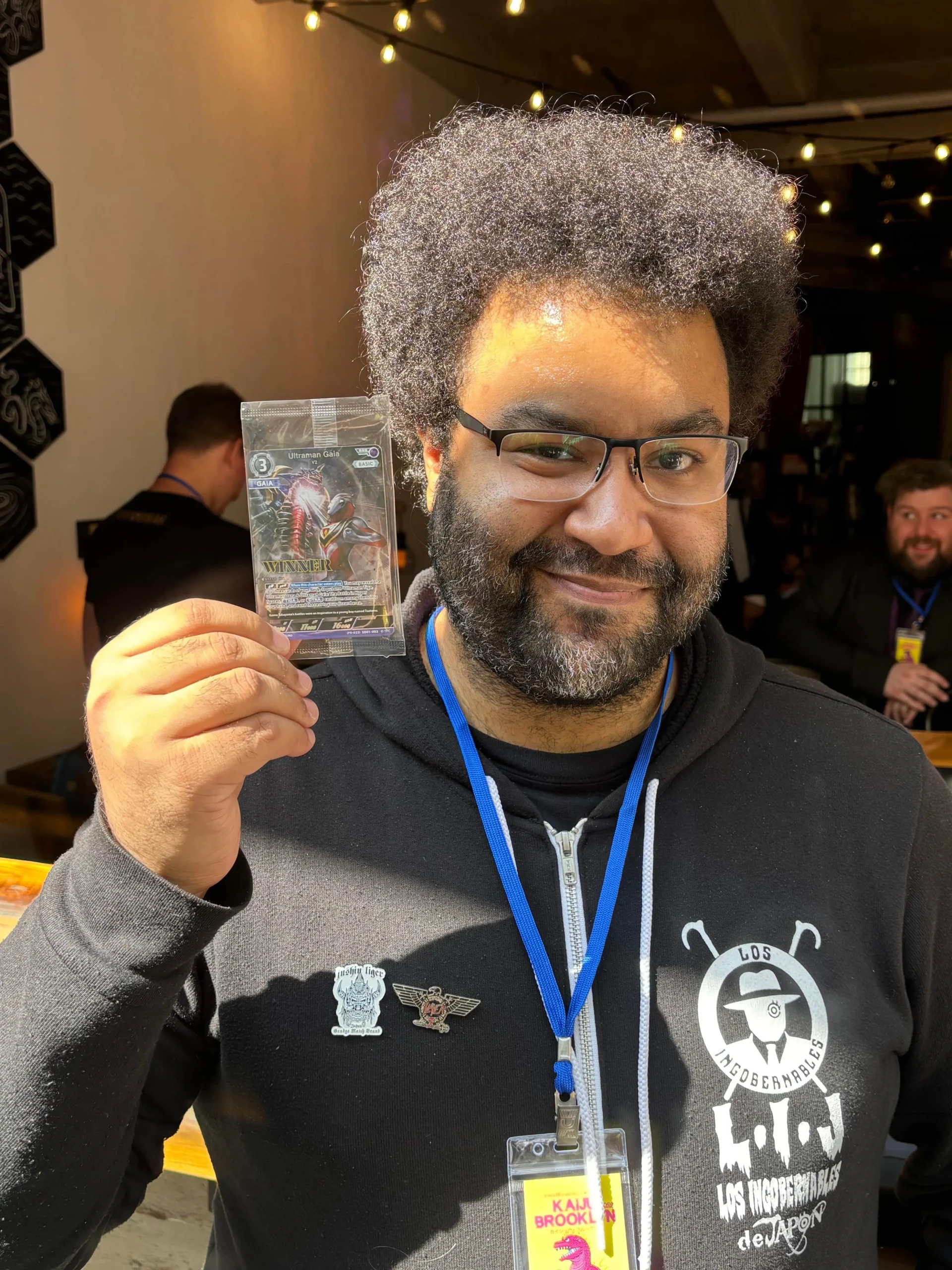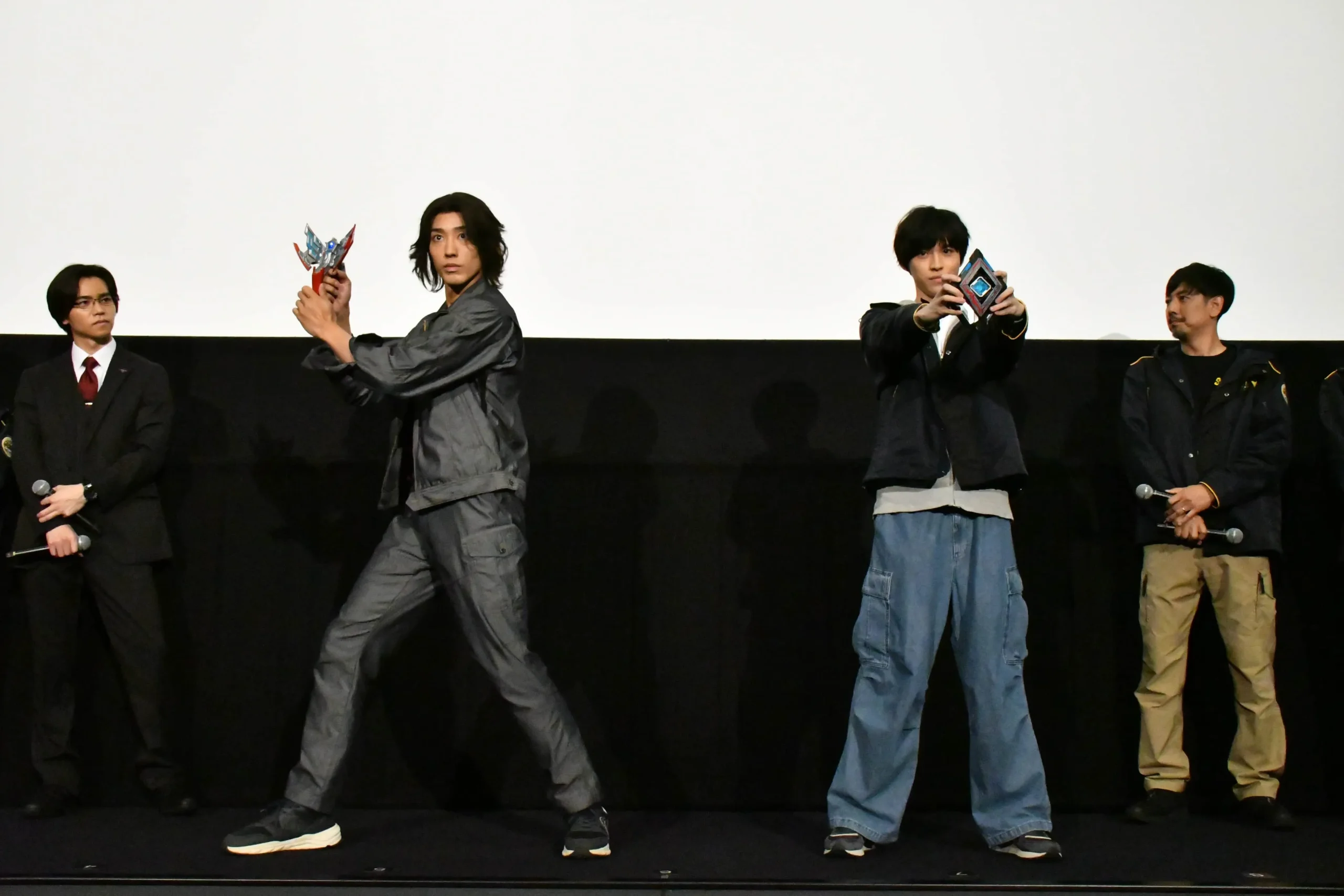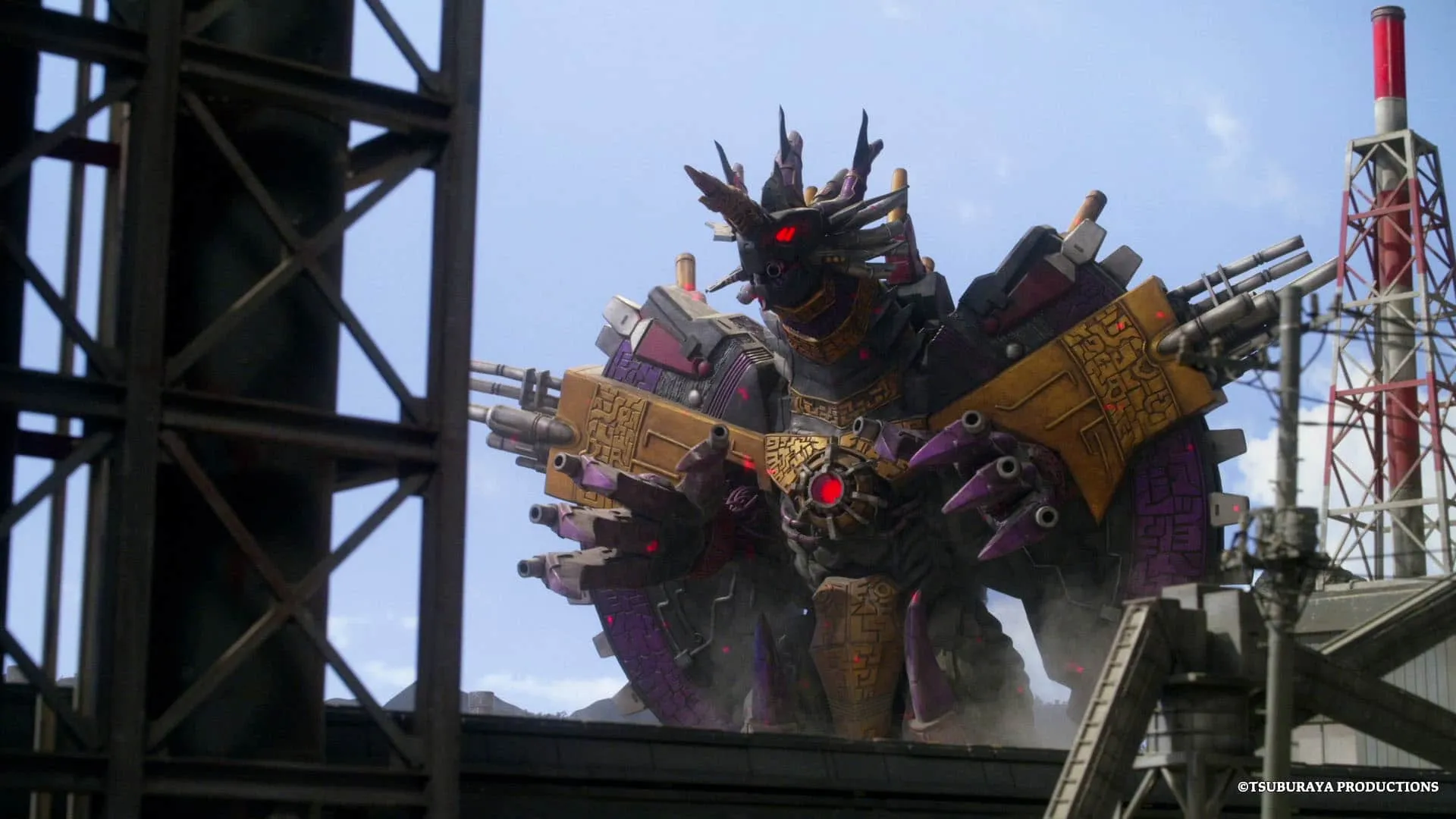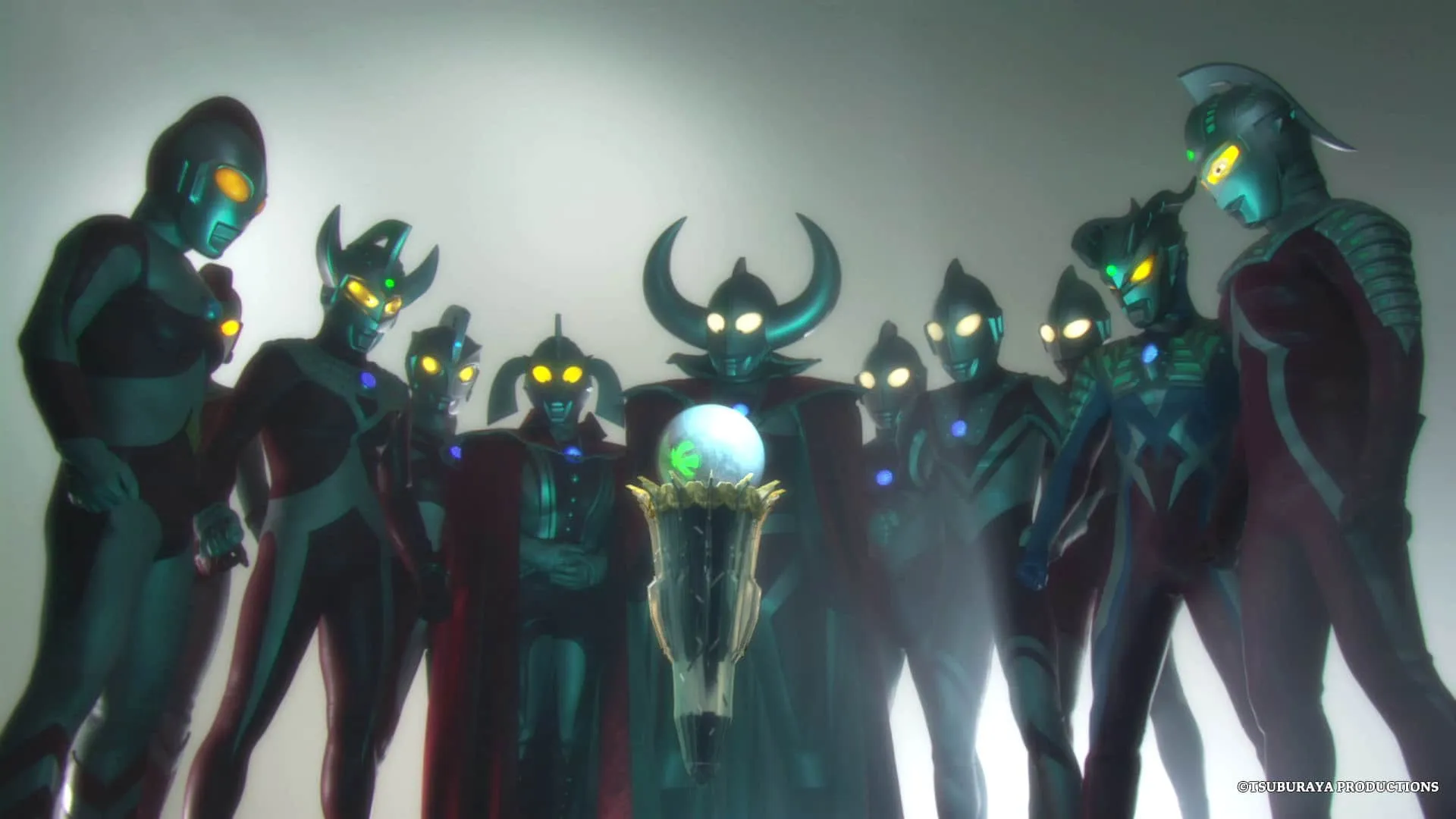EJ
Hi there, folks! Welcome to a special Ultraman Connection discussion. I’m EJ Couloucoundis, the Editor-in-Chief of Ultraman Connection.
SL
And I’m Sarah Last, content creator and staff writer for Ultraman Connection! Typically, you’d be reading our thoughts Ultraman Decker, following its Friday night premiere, but now that the series has concluded we’re bringing you something different.
EJ
Right. Now that Decker has ended, the time has come to look at it — and honestly, the entire New Generation — as a whole. Sarah, obviously you’ve been through Decker week-to-week, but are there any New Generation shows that you’ve missed? [Editor’s Note: The Ultraman franchise is currently divided into three periods or “generations.” The third and most recent period is called New Generation Heroes.]
SL
Ultraman X was actually my first introduction to the franchise. When I found out it was going to be simulcasted along with its premiere, even though I knew very little about Ultraman at the time, I was interested enough to follow it weekly as it aired. I was also very grateful to eventually be able to watch almost the entire rest of the New Generation shows in the same way — in addition to backtracking for Ginga and Ginga S thanks to streaming, and then the later releases from Mill Creek and Shout Factory.
R/B and Taiga were the only ones I couldn’t watch on release or go back and find, and R/B has an official release now, which helps a lot! But yes, that’s a long story to say that I’ve seen all the New Generation shows up to this point.
EJ
Right, Taiga isn’t available globally. I’m sure that’ll be fixed at some point.
Anyway, I wanted to talk about Decker today, but you can’t really do that without acknowledging the ball that Decker picked up from its predecessors. Decker is a continuation in so many ways — a direct sequel to Ultraman Trigger: New Generation Tiga, a spiritual successor to Ultraman Dyna, and in my opinion, a crystallization of many of the themes of the New Generation series. And a lot of that starts in its relationship with Ultraman Ginga.

SL
Wait, Ginga? I’m sure you’ve got something in mind, but that’s not a relationship that immediately comes to my mind when talking about these shows.
EJ
Haha, I know it’s not exactly obvious from first glance, but in many ways, Decker almost bookends the very first New Generation show! After all, can you tell me which of the two series is about a young man who is still discovering his path forward receiving the power of Ultraman from the distant future? (The answer is both.)
SL
…You know what, it’s been a while since I’ve watched Ginga so I completely forgot that the show eventually hints that he’s an Ultraman from the future. That makes a lot of sense, and I also see a lot of similarities between Hikaru and Kanata’s characters. Both are very gung-ho about seeking that future but also find the help of their friends necessary to keep them on the right path, and over some pretty significant hurdles in their way on that journey.
EJ
Would you believe me if I told you that that’s only the start of the comparisons that can be drawn between the two series?
What if I reminded you that the primary antagonists of both series are cosmic entities that seek to stem the flow of progress in the name of ending conflict throughout the cosmos? Dark Lugiel sought to “freeze the time” of all life by converting them to the inanimate spark dolls, while the Sphere sought to assimilate all life into a single, unchanging will, but the end goal essentially boils down to the same thing.
In truth, Ginga and Decker are significantly different shows. (Though I could ABSOLUTELY get into further similarities, including how both find their greatest allies in Ultras from the distant past…) What links the two, what matters, is that they both reflect in many ways the greater theme of the New Generation Series, a theme that can be found in the name of the era itself: The journey through time, one moment at a time, to a future that we can create ourselves, no matter the challenges. A constant journey to a new, and more importantly, better, generation.
SL
It’s interesting how those themes sometimes echo real-life events as well. Ginga was a new start for the franchise following a long period where Ultraman was off the air, but also followed the response to the 2011 earthquake and tsunami. A lot of Decker may have been written with the COVID pandemic in mind, and the isolation and fear that came with it.
I’ve always loved Ultraman shows for how they can parallel small, every day, relatable events in the mundane world with huge cosmic battles in that way. I know as Decker was airing, I mentioned several times in those recap articles how well the small-scale followed the very, very large-scale narratives, but that’s something that all the New Generation shows do in one way or another. Again, going back to Ginga, the smaller scale of the show required by budget constraints and a smaller number of episodes almost necessitated that sort of storytelling structure.
EJ
Agreed. It’s been ten years since the show aired, and the New Generation Series began. In a lot of ways, much like the return of Ultraman after the events of 2011 felt like a big deal, Decker felt like a response to the stifling nature of COVID. In a lot of ways, that sort of thing has been the role of New Generation shows, hasn’t it? Today’s kids live in a scary world, and many are told that the future will be, in a word, difficult. Isn’t it the role of a series like Ultraman to help get through that uncertainty?
Maybe that’s a bit ambitious, but I know that’s what shows like Ultraman Tiga did for me as a kid.
SL
I think the word “uncertainty” is a good choice for explaining why these shows are important. The shows don’t give audiences a specific road map for how to get through life; Kanata still didn’t have an answer for what he wanted to fight for, or where his future would lead to by the end of the show. But all the series do show that the sadness, fear, and darkness that comes from uncertain times can be overcome in the first place.
I know sometimes people hem and haw about differences between the different “eras” of Ultraman, like the classic Showa era, the Heisei era (particularly in relation to the TDG series), and now with the “New Generation”, but I think the biggest shift is in relation to how each era depicts the “unknown”. [Editor’s Note: TDG stands for Ultraman Tiga, Ultraman Dyna, and Ultraman Gaia, three of the most renowned second-generation series.]
In the Showa era, the “unknown” was outside of Earth, things that don’t appear to be human, or don’t come from the world we’re familiar with. In the New Generation, the “unknown” is the future. Humanity encounters the unknown future in the same way the SSSP and other teams in the classic Showa era encountered unknown aliens, or spaceships from another world.

EJ
You’re absolutely right, and I think it fits. For the Classic era of shows, the unknown was derived from creative, bizarre threats drawn from our own fears and imagination. In Generation 2, especially the TDG trilogy, the great threat was the literal unknown — threats that represented things like the consequences of climate change, the alien terror of humanity’s place among the stars, things like that.
SL
Right, the TDG series takes a lot of influence from some Lovecraftian themes, in that the threats represent the breakdown of our expectations of the universe. What happens when science and reason fail us, and the universe itself becomes unknowable and hostile to humanity?
EJ
For the New Generation, those themes from Generation 2 continued, especially as actual consequences for things society hadn’t thought about began to become clear. However, what changed was how these themes were related to us; suddenly, these discussions took on a distinctly personal tone. Things were no longer societal but reflected on an individual scale.
Let’s talk about Ultraman Orb for a moment. Orb is a bit of an interesting case compared to the rest of the New Generation Heroes, as he is clearly not new to his heroic career. However, the threats he’s facing in his series are new to him, consequences of past decisions, good and bad — and deeply personal.
SL
You mentioned earlier that a lot of the New Generation shows, although especially Ginga and Decker, often have heroes who derive strength from past heroes and their example. I absolutely love how Orb intensifies and subverts that concept. For Gai, the fact that he must rely on past heroes’ powers is treated like a handicap, a crutch to lean on since he starts out the show having lost his own unique power. But at the same time the example of those heroes — or villains — help him to understand his responsibility better, and he rediscovers his own strength through that process.
I honestly can’t recall another Ultraman show that has that same perspective on how to reconcile with the past and one’s past mistakes. It’s a tremendously powerful story (also for how it runs parallel and incorporates the main villain’s own reconciliation and redemption), and its inclusion within the larger umbrella of the New Generation makes that counterpoint even more poignant.
EJ
Maybe not the same, but a similar perspective can be read in Ultraman Geed, Orb’s successor. That use of inheriting the example of heroism from one’s predecessors is literal in the case of Geed, who needs to borrow the power of the original Ultraman to transform… as well as the power of his father, the evil Ultraman Belial.
In Geed’s case, he has inherited a legacy, and whether that legacy is good or evil, he can still learn to be better from it. That relationship with the literal sins of his father is a defining element of Riku Asakura’s life and is very much the story of a child choosing their path with the awareness of the path taken by their parents. Eventually, Geed can transform solely under his own power, but even power is in several ways influenced — and honoring — the man Belial was, while being someone new.
SL
Orb and Geed’s own stories being so focused on these legacies also makes their return appearances in other New Generation shows (or movies) a lot of fun. That’s something else I like about this era of Ultraman shows, seeing all these characters show up in new circumstances, and interact with new characters in ways that reinforce those legacies. Having both Gai and Riku serve as mentors to other heroes who follow them gives them a chance to really show off how far they’ve come, and also make for some really funny scenes in their own right.
Like Gai realizing that he gets to be the senior “senpai” to another Ultra hero for once, when he meets Riku in the Ultraman Geed movie.
EJ
A doubly funny scene when you remember that he’s the oldest member of the group! At the same time, like you said, Orb is about Gai starting again, and how he’s allowed to do that. Once he’s learned, he is immediately interested in passing those lessons along — and isn’t that kind of the point of the Ultraman Series as a whole?
SL
Even the Ultra Galaxy Fight specials like to make that point, having these characters unite and sharing those lessons; letting brand new heroes learn from older ones, who were themselves once brand new, fresh heroes who didn’t know what they were doing either. For a franchise with over 55 years of continuity and legacy, seeing how all those parts connect, even now with the New Generation takes on Tiga and Dyna, as well as extensions of legacies from the Showa era, is just so much fun to watch.

EJ
Right. You can’t have a new generation without having an old one, and New Gen puts a lot of effort into honoring what came before while showing you something new.
Speaking of that, there’s another funny set of bookends to Ginga and Decker: Both series are New Gen shows that have multiple entries taking place in their respective settings. Ginga was followed by Ginga S, while Decker was a sequel to Ultraman Trigger. As a result, both settings get to experience the passage of time differently from other entries. In Decker’s case, a whole DECADE passes in-universe! We get to see in Decker the future that Trigger fought to build, and that’s fascinating to me.
SL
It really is fascinating! It makes the setting feel more “lived in” and real to see that time has moved forward, and many of the things hoped for by the Trigger cast have been worked towards! It was a very small scene, but seeing the old GUTS Select team still working together as friends, on Mars alongside Kengo, and working with him specifically as Ultraman was a really powerful way of cementing where the Trigger series (and its movie) ended.
Like we mentioned earlier, a lot of the New Generation shows — and Decker specifically — are about going out into the unknown future. Being able to see that the characters from Trigger became stronger, surer of themselves, and continued to fight for that future in the ways they best knew, helped also to give certainty to the hope that the characters in Decker would be able to do the same.
EJ
It certainly did. But at the same time, Decker’s end leaves us in a bit of a puzzling situation. Ultraman New Generation STARS is now airing as of this last weekend, and it feels a bit… different from previous “retsuden” shows. The New Generation is now ten years old, and these characters are being remembered in the same vein as their predecessors in Classic and Generation 2 series. In a lot of ways, it feels like we’re in for something big, something different, for the future of Ultraman.
Then again, isn’t that exactly what we’ve been taught to be excited for?
SL
The franchise is also in a unique place now with a significant international, and English-speaking audience along for the ride too! It’s exciting to think of the next show that will be coming, but I think the fact that we can get hyped up along with fans in Japan, and all over the globe, is something extra special that I appreciate as well.
I gave up trying to make predictions while writing about Decker from week to week, so I won’t even try to guess what we’ll be seeing from the next series. All I know is that I’m looking forward to it and will probably continue to enjoy watching it alongside the rest of the Ultraman community in the months to come.
EJ
Couldn’t agree more, Sarah. Of course, Decker isn’t quite done yet: Come back when February starts to enjoy plenty of coverage of the upcoming Ultraman Decker Finale: Journey to Eternity. Until then, see you later!
